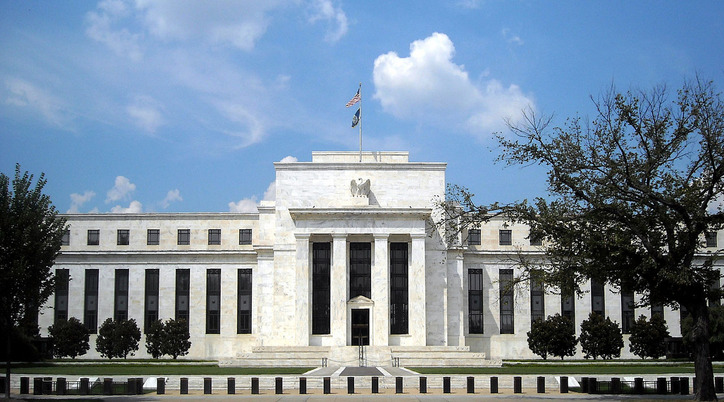

 By VennerRoad, 6th Oct 2014
By VennerRoad, 6th Oct 2014
A radical new approach to both the creation of money and the distribution of wealth on-line.

In a September 15 interview with the BBC, Richard Branson said the Internet had resulted in many companies going to the wall. He was commenting in particular on the news that the retailer Phones 4U had gone into administration. The other company to which he alluded was his own. Writing on his Virgin blog earlier, he said the decline of Virgin Megastores in the UK was due to “illegal downloading and the popularity of iTunes”.
Branson’s comments raise three issues that neither politicians nor especially economists understand: the purpose of work, the nature of wealth creation, and now the obsolescence of copyright.
Most people believe that job destruction – as inferred here – is a bad thing. But is it? If you are eking out a living as are most of us, that claim sounds self-evident, but that is not because it is self-evident, rather it is because you have been conditioned even brainwashed to believe that work is good. That is a maxim of most politicians. When he was Prime Minister, Gordon Brown would often use the phrase “hard working families”. If hard work is good, surely forced labour is better, and slavery is best of all. What is wrong with that equation apart from everything? Okay, let’s try looking at this from a different perspective.
Work has been a necessity since year dot. Without it wheat does not get sown, prey does not get hunted, and we all starve. Thus work was a means to an end, not an end in itself. As we move towards a totally automated society, the importance of work should diminish. We may never get there entirely, but as automation progresses, more and more work can be carried out by fewer and fewer hands. Take one example. Tinned food has been around for about two hundred years. Cans were originally somewhat larger than those most housewives use today, and a skilled craftsman could churn out maybe six an hour. At the time of writing, the Heinz company sells around 1.5 million cans of baked beans in the UK every day. When one adds to that other canned foods, frozen foods and bottled drinks, one can begin to appreciate the truly exponential increase in output the food industry has seen in that time.
Enormous quantities of food produced and distributed by relatively few hands allows us to engage in all manner of other productive enterprises. And leisure. Who is financing all this?
The perceived wisdom is that investment comes out of savings; this is true that to some extent, refraining from consumption allows us to accumulate capital – in particular better and more efficient machines – but the reality is that the flow of money which makes all this possible comes from the banks, which do not lend money, as more and more people are coming to realise, rather they create it out of thin air and charge interest on it in perpetuity. In practice, banks create nothing else, they are really little more than strongrooms and bookkeepers. The real wealth creators are those who work in industry creating the goods and services that feed us and enrich our lives. It follows then that the power to create credit belongs to these industries rather than the banks.
One industry that dominates all our lives visibly so is the Internet. Richard Branson’s Megastores may have closed – which is bad for him, although he is not down to his last million yet – but if you can download all the music you want from YouTube and other sites, most of it free, why should you care?
Music stores are not the only ones that have been hit badly by the rise of the Internet. Have you seen the price of even a second class stamp nowadays? Why do you think that is? More to the point, why should you worry when for the most part you can send as many letters as you like by e-mail for free, fully formated as well?
You can increasingly read books on-line. Talking of reading, many local newspapers have gone to the wall in recent years, and some national ones have introduced paywalls. Why though would you pay for news you can read for free?
Then there is the issue of copyright, if you get all your music, entertainment and news for free, the flip side is that nobody is going to pay you for anything you write or perform. And if you get ripped off, are you really going to spend tens or hundreds of thousands of pounds chasing someone who may not in any case have the capacity to pay you? So what is the solution?
Take the power away from the banks and give it to the Internet! So simple, yet no one else on planet Earth appears to have thought of it before. This can be done on a national scale but the bottom line is that every download of a song, book, newspaper, indeed every e-mail sent is a consumption of real wealth. In the real world, whenever we consume wealth, somebody is rewarded, so shouldn’t somebody be rewarded for all this wealth we are consuming?
Put simply, the governments of the world should calculate how much wealth is generated in this fashion, then pay the big Internet companies – Google, Yahoo! etc – with newly created debt-free money, some of which they would retain, and the rest would be distributed to those further down the food chain: newspaper publishers, record companies, and indeed individual YouTube accounts (when the number of pageviews warranted it).
The issue of work has been dealt with elsewhere, that leaves us with copyright. Every creator of an original artwork (poem, essay, photograph, documentary, song...) should be entitled to recognition as the creator (or enhancer, arranger, etc) of that particular piece, but some people want to have their cake and eat it. Currently the NUJ is waging a big campaign about copyright, but how many journalists who complain about being ripped off or underpaid by publishers read and listen to news on-line for free, download music, etc? How about all of them?
We should forget about copyright, at least as far as the cyberworld is concerned, literally throw it out of the Windows. The NUJ, ALCS and all other bodies that chase dollars for their members in this fashion should abandon this largely unproductive pursuit and campaign for the reforms proposed above. What is needed is new, debt-free money being paid to cyberwealth creators, not everybody chasing the same buck.
To Wikinut Articles Page